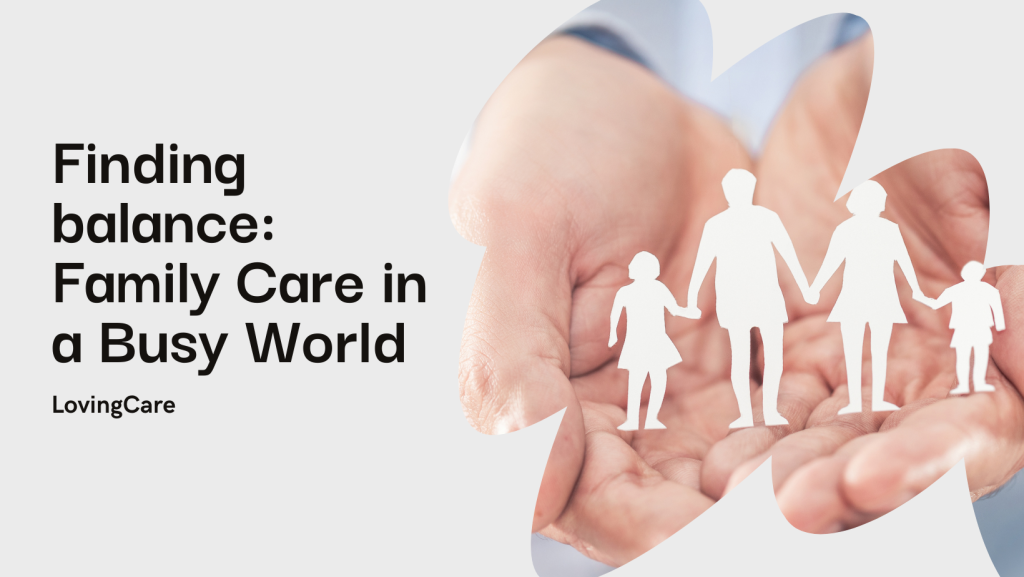It can be difficult to juggle the demands of family caregiving with other obligations, so caregivers must prioritize self-care, establish boundaries, and look for outside help. Family caregivers frequently have to balance a variety of duties and obligations in today’s fast-paced and connected world. These include helping children with special needs and caring for aging parents, all while juggling employment, household chores, and personal needs. Here, we look at ways to maintain general well-being in today’s hectic world while striking a balance between self-care and family caregiving responsibilities.
In order to preserve their physical, emotional, and mental well-being while providing care for loved ones, family caregivers must practice self-care.
Caregivers can avoid burnout and replenish their batteries by making time for self-care activities including hobbies, exercise, relaxation techniques, and socializing with friends. It’s critical that caregivers prioritize things that make them happy and fulfilled and set aside time each day for self-care.
For families to maintain a healthy balance between personal needs and caring obligations, setting boundaries is essential. Caregivers should establish reasonable expectations for what they can and cannot accomplish and communicate boundaries with friends, family, and other stakeholders in an aggressive and unambiguous manner. Caregivers avoid feelings of resentment, guilt, and overwhelm by setting boundaries, standing up for their own needs, and making sure they have the time and space to take care of both themselves and their loved ones.
Another crucial tactic for family caregivers to preserve their wellbeing and successfully handle caregiving tasks is to ask for assistance from others. Caregivers should not be afraid to ask for help when they need it, whether it be from friends, family, or professional caregivers; they can also get in touch with community resources and support organizations. Caretakers can share the load of providing care, get both practical and emotional help, and avoid feelings of loneliness and isolation by creating a support network of reliable people and institutions.
In conclusion, maintaining general well-being and avoiding burnout in today’s hectic society requires striking a balance between self-care and family caregiving responsibilities.
By prioritizing self-care, setting boundaries, and seeking support from others, caregivers can ensure that they have the physical, emotional, and mental resilience to provide effective care and support to their loved ones while maintaining their own health and happiness. As a cornerstone of family relationships, caregiving strengthens bonds, fosters resilience, and ensures the well-being and dignity of loved ones in times of need.

